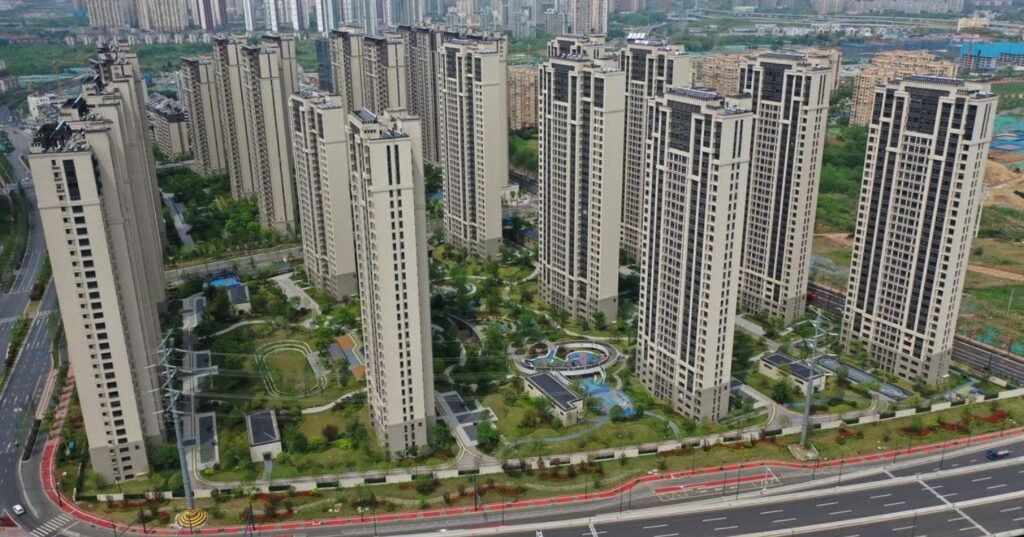China’s property sector, which has been a key driver of the country’s economic growth for decades, is facing a prolonged and difficult period of adjustment, according to a leading economist.
Hao Hong, the chief economist of Grow Investment, a Hong Kong-based investment firm, said that fixing the problems in the property market could take years, if not a decade, as the sector grapples with oversupply, high debt and slowing urbanization.
Oversupply of housing
Hong said that China has built too many houses for its population, which is expected to peak around 2027 and then decline. He cited a former Chinese official who warned that China’s 1.4 billion people may not be able to fill the unoccupied apartments across the country.
“There is now an oversupply of real estate … 1.4 billion people may not be able to live in them,” said He Keng, a former deputy head of China’s statistics bureau, at a conference in September.
Hong noted that 18 trillion yuan ($2.46 trillion) worth of Chinese property were sold two years ago. He said managing 10 trillion this year, or five to six trillion yuan worth of sales further down the road, would be considered “lucky.”
China’s August new home prices dipped 0.3% month-on-month, extending the real estate slump. The figure also marked a 0.1% drop compared to a year ago.

High debt levels
Another challenge facing the property sector is the high level of debt that many developers have accumulated over the years. Some of them, such as Evergrande and Country Garden, have been struggling to repay their creditors and avoid default.
Evergrande, which has more than $300 billion in liabilities, announced on Friday that it would delay a debt restructuring meeting that was due on Monday. Country Garden, which has more than $100 billion in debt, is also teetering on the edge of insolvency.
The debt woes of these developers have sparked fears of contagion in the financial system and the broader economy. The Chinese government has been trying to contain the risks by providing liquidity support to “good-quality” developers and encouraging mergers and acquisitions in the industry.
However, Hong said that these measures are not enough to solve the fundamental problems in the sector. He said that the government needs to reform the land and fiscal system that has incentivized local governments to rely on land sales as a major source of revenue and encouraged developers to borrow heavily to bid for land.
Slowing urbanization
A third factor that is weighing on the property sector is the slowing pace of urbanization in China. Hong said that China’s urbanization process, which has been progressing very fast in the past 10 years, is coming to a halt.
He said that China’s urbanization rate, which measures the proportion of people living in urban areas, has reached about 65%, close to the level of developed countries. He added that the quality of urbanization has also declined, as many migrants do not have access to public services and social welfare in the cities.
Hong said that without further urbanization, the demand for housing will also decline. He said that China needs to reform its household registration system, or hukou, which restricts migrants’ rights and benefits in urban areas. He also said that China needs to develop its service sector and innovation industries to create more jobs and income for urban residents.
A healthier economy
Despite the gloomy outlook for the property sector, Hong said that there is a silver lining in the long run. He said that once people reset their expectations and the economy restructures to grow from other industries rather than relying mostly on the property sector for growth, then China will have a better and healthier economy than before.
“Not having an overbearing Chinese property sector actually is good for the Chinese economy going forward,” he said.
He also said that China’s post-Covid economic recovery story has been disappointing, but it could improve if the country adopts a more flexible approach to dealing with the pandemic and eases some of its lockdowns and restrictions.
